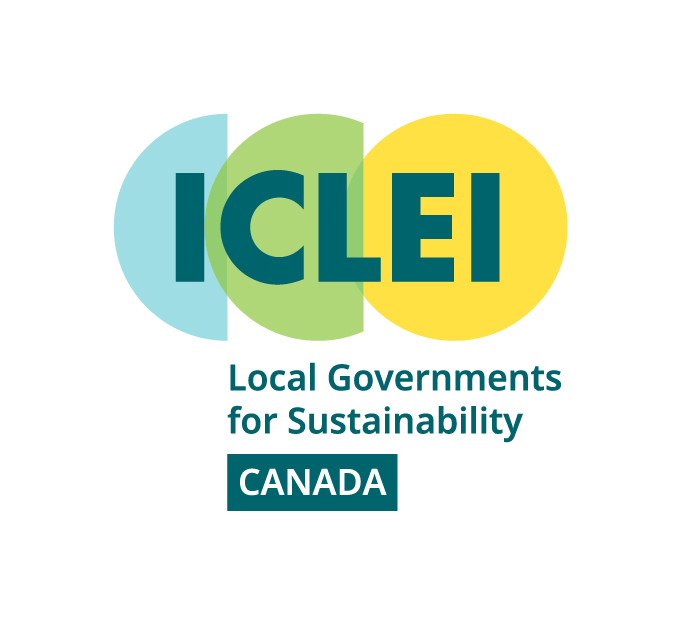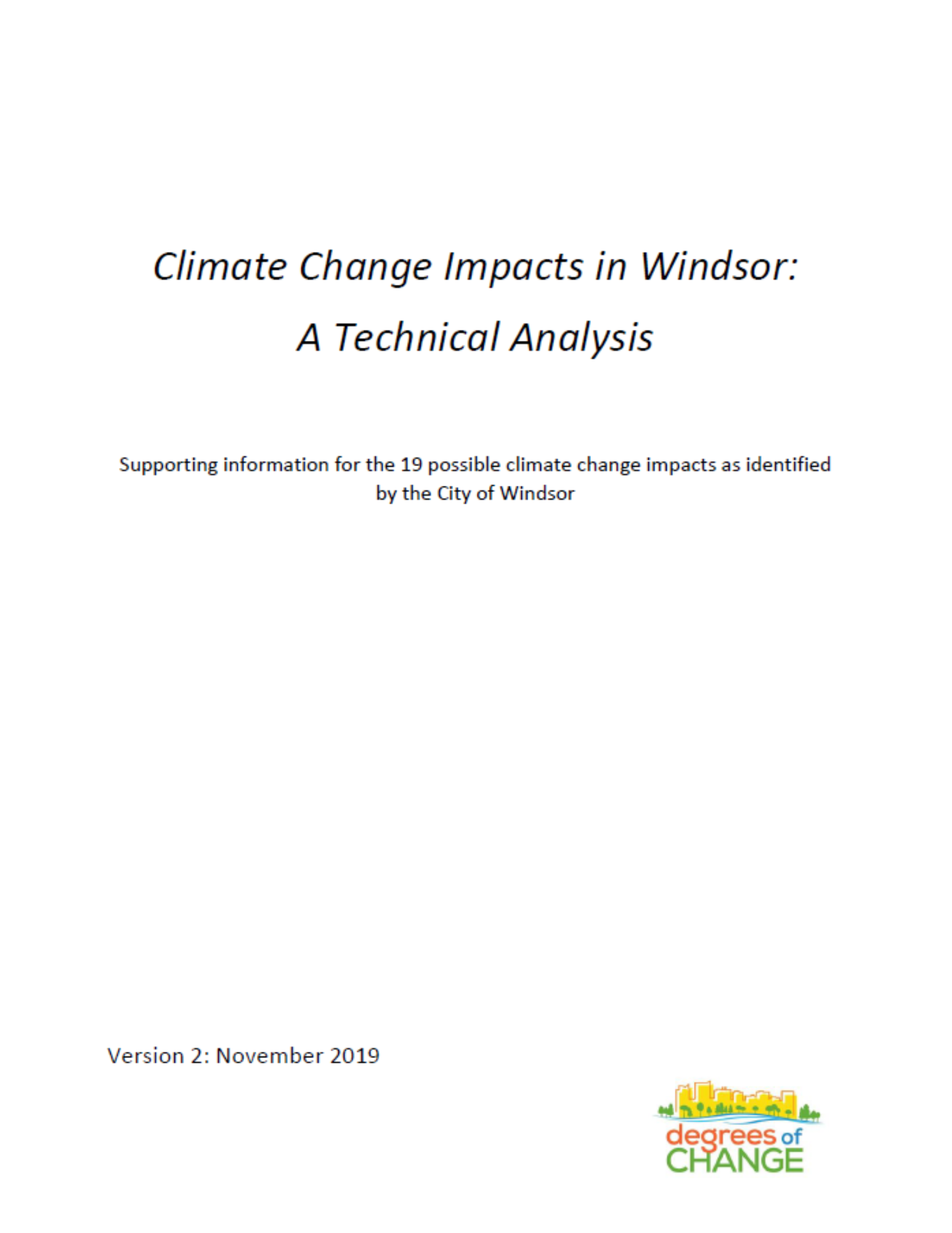Cost of Doing Nothing
A Toolbox for Building a Local Business Case for AdaptationWhy build a business case for adaptation?
When investing in climate action, local decision makers need to weigh the costs of action versus inaction but rarely have the time and resources needed to do so. While the mounting costs of climate change presents a serious fiscal and logistical challenge for municipalities, justifying the investment in adaptation measures can be difficult for municipalities whose budgets and capacities are already stretched. However, without immediate action, these costs will only increase and threaten to consume funds and resources needed for maintaining and operating critical services and addressing existing and emerging priorities. Building a business case for adaptation will help local decision makers understand what is at stake and support municipal adaptation planning.
About the toolbox
The Cost of Doing Nothing (CODN) toolbox provides a jumping off point for municipalities to assess the costs of doing nothing within their own local context, and support their own climate adaptation planning process. It provides municipal decision makers with guidance on collecting locally-relevant data to weigh the costs inaction when investing in climate action. The CODN resources also supports municipalities in framing their local data within a national and provincial/territorial context, and examines the costs and impacts of climate change across multiple knowledge systems, climate change hazard, and sectors.
The toolbox is made up of the following key documents, tools, case studies, and appendices. Together, these resources provide municipalities the tools to assess the costs of doing nothing within a local context, and makes building a business case for climate adaptation as easy and simple as possible. While each of the resources in the toolbox can be used separately, it is recommended that municipalities become familiar with each of the resources before they begin their assessment process, starting with the primer.
Key documents
Primer Document (Start Here!)
This resource sets the foundation and overall context for assessing the cost of doing nothing to address climate change at the municipal level. It defines what costs and impacts look like at the local level, and identifies the eight national impact statements that form the basis for the cost of doing nothing assessment used in the municipal template.
Municipal Template Instructions
This resource provides important information for municipalities who are ready to write their own cost of doing nothing report using the municipal template. The goal of this resource is to ensure municipalities have all the information they need to effectively use the template. This resources includes:
- A list of tasks to complete before building a local business case for adaptation
- The steps to follow when using the Municipal Template
- An overview the content is included in the Municipal Template
- Guidance on collecting data
- General recommendations and key considerations to keep in mind as municipalities develop their own reports
Download and read this resource before using the municipal template.
Tools
Municipal Template (Editable Word Document)
This resource is designed to help municipalities to easily develop their own cost of doing nothing report. The Municipal Template has been designed to be copied, edited, and customized by municipalities who would like to write their own cost of doing nothing report. This resource includes pre-populated and editable content along with notes and recommendations for the following sections:
- Introduction
- Purpose of the report
- Climate change impacts in a municipal context
- Local impacts and Risks
- Eight national impact statement sections (these include costs and examples related to each impact)
- Recommendations
- References
To use this tool, download and save a copy of the editable word document to your computer. Instructions are provided in the municipal template instructions document.
Data Collection Tracking Tool (Editable Excel Spreadsheet)
As municipalities begin to collect data for their report, this tracking tool suggests potential sources of climate, costs, and impacts data identified in each of the selected national impact statements, and provides guidance on how best to attain and track the collection of this data. This resource includes:
- Key considerations and recommendations for the data collection process
- Specific instructions for using the tracking tool
- The list of eight national impact statements
- Descriptions of potential data types, sources, and other relevant
information for each of the national impact statements, as well as columns for tracking the collection process
To use this tool, download and save a copy of the editable excel spreadsheet to your computer. Instructions are provided in the first tab.
Case Studies
In collaboration with ICLEI Canada, the City of Windsor and the City of Hamilton have both completed their climate adaptation plans following the Building Adaptive and Resilient Communities (BARC) framework. As part of their planning process, they each created a locally-relevant report assessing the costs of inaction. Both of these case studies can be used as reference for municipalities looking to create their own analysis.
How much is climate change costing Canadian communities? City of Hamilton report
This case study provides an example of local business case for the City of Hamilton that was developed using the cost of doing nothing report template. This report was written and brought to Council in July, 2022.
Appendices
Appendix A: National and Subnational Data Sources
This summary table compiles several publicly available national and subnational resources and datasets to support municipalities in understanding and evaluating climate change projections, costs and impacts across a number of sectors and climate change hazards. These resources can be used to help contextualize their local data. Please note that there are also several provincial-specific datasets that have not been included, but that may be quite useful depending on a municipality’s geographic location. The table can also be found in the appendices of the primer document.
Appendix B: Local Data Sources
This summary table compiles each of the potential sources of local climate, costs or impacts data identified in each of the selected national impact statements sections in the municipal template. The table can also be found in the appendices of the primer document and forms the basis for the data collection tracking tool.
Webinar Replay
This webinar introduces the CODN Toolbox, which was developed to help local decision makers weigh the costs of action versus inaction when investing in climate action. Learn how to use the CODN Toolbox to build a local business case for climate adaptation and how the City of Windsor and the City of Hamilton developed local business cases for their municipalities.

ICLEI Canada acknowledges that, as part of the Advancing Adaptation Project, the CODN Toolbox was made possible with funding from the Ontario Ministry of Environment, Conservation and Parks (MECP) alongside financial support from the Government of Canada through the federal Department of Environment and Climate Change Canada. We would also like to acknowledge the individuals who graciously shared their experience and knowledge to help shape this resource.
Reach us
ICLEI Canada
401 Richmond St W (Suite 204)
Toronto, ON M5V 3A8









